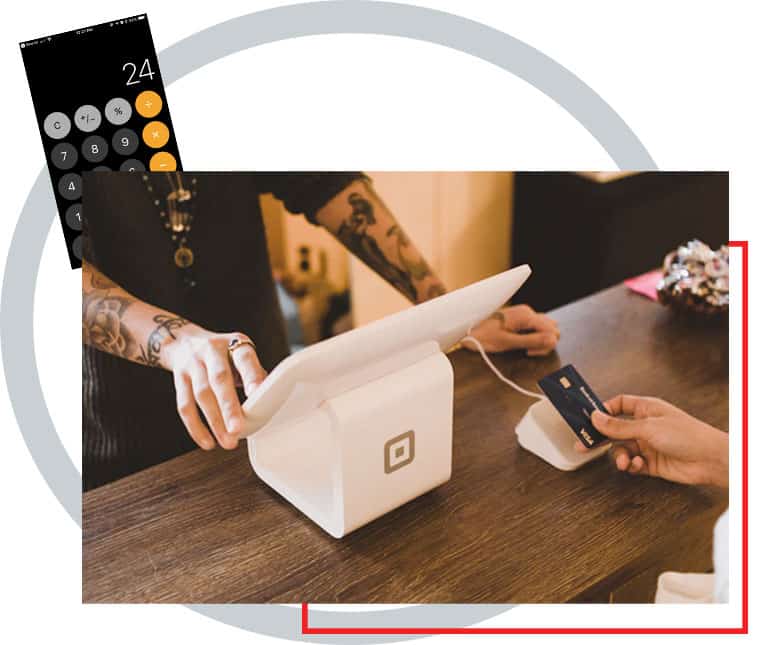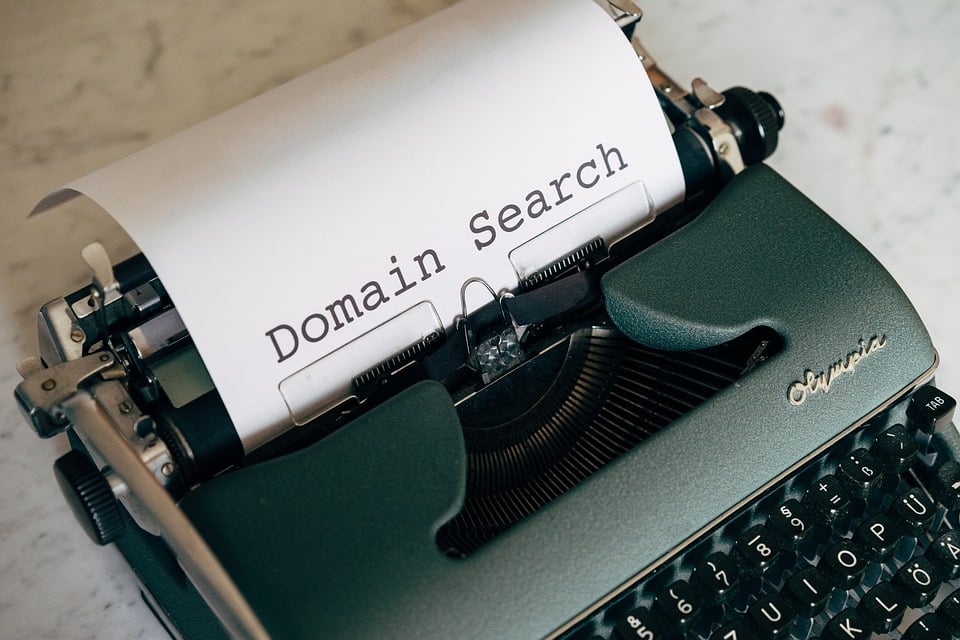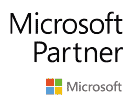Home » IT Services » Domains » Domain Name Search
Your Domain Name Search has never been so easy. Find yours today by searching your brand name on search box and register your domain.
It’s that simple! We have everything you need for your website like Hosting, Security and web development. You name it and we’ll get it done. Your One Stop pit stop for your Online presence.
Start your Website with Setup4 Today!
Benefits of Domain Name Registration
When you register a domain with us we include additional features, including
Encryption
Secure your website with SSL. Let’s Encrypt your Website.
Security
Protect your domain from any unauthorised transfers.
DNS Management
Take total control of DNS until life of your Domain registration.
Email Forwarding
Forward email addresses under your domain to other email address
Discover the very latest top level domains (TLDs) right here, and check out our upcoming releases too. You can register the freshest TLDs in the world, and be backed by our 24/7 customer support every step of the way. So, what are you waiting for?
We Provide Affordable Domain Pricing with Superior Support
Don't break the bank
With our affordable pricing and superior support, there’s no reason to overpay when buying a domain name.
Protect your domain from expiring and accidentally being lost by enabling auto-renewal. Switch back to manual renewal at anytime. Using this service ensures that your website domain names are always protected.


What is a Domain Name?
A domain name is a unique name used to identify a website or web page on the internet. It is an address that includes a top-level domain (TLD) such as .com, .net, and .org along with a second-level domain (SLD). For example, www.example.com has the TLD of “.com” and the SLD of “example”.
Domain names are typically used for websites and webpages, but can also be used with other services, such as email or internet protocol (IP) addresses. Domain names make it easier for users to find a website or web page by typing in a memorable name instead of a numerical IP address, which gets extremely complicated and hard to remember quickly.
The easiest way to understand a domain name is by imagining it as a house. Every house has an address that people use to identify it. A domain name is the exact same thing, only online. Domain names are almost always related to your brand or service, making it easy for people to remember and find your website.
At Setup4, we’re here to help you buy and register your domain name, and we’ll take care of the rest, saving you time and resources!
What Are The Different Types of Domain Names?
A domain name is a unique name used to identify a website or web page on the internet. It is an address that includes a top-level domain (TLD) such as .com, .net, and .org along with a second-level domain (SLD). For example, www.example.com has the TLD of “.com” and the SLD of “example”.
Domain names are typically used for websites and webpages, but can also be used with other services, such as email or internet protocol (IP) addresses. Domain names make it easier for users to find a website or web page by typing in a memorable name instead of a numerical IP address, which gets extremely complicated and hard to remember quickly.
The easiest way to understand a domain name is by imagining it as a house. Every house has an address that people use to identify it. A domain name is the exact same thing, only online. Domain names are almost always related to your brand or service, making it easy for people to remember and find your website.
At Setup4, we’re here to help you buy and register your domain name, and we’ll take care of the rest, saving you time and resources!
Top - Level Domains (TLDs)
These are the most common types of domain names and include generic TLDs (gTLDs) such as .com, .net, .org, and country-code TLDs (ccTLDs) such as .us, .uk, .au, .ca, etc.
Second - Level Domains (SLDs)
These are the next level of domain names, located to the left of the TLD. For example, in the domain name “example.com,” “example” is the SLD.
Subdomains
These are domain names that are created by adding a prefix to an existing domain name, separated by a period. For example, “blog.example.com” is a subdomain of “example.com.”
Internationalised Domain Names (IDNs)
These are domain names that use non-ASCII characters, such as accented letters or characters from non-Latin scripts.
Brand TLDs
These are domain extensions that are owned and operated by a specific brand or company. For example, .google and .apple are brand TLDs.
Sponsored TLDs
These are domain extensions that are sponsored by a particular organisation, such as .edu for educational institutions or .gov for government agencies.
Infrastructure TLDs: These are domain extensions used for infrastructure purposes, such as .arpa for the Address and Routing Parameter Area (ARPA) or .int for international organisations.

Which Type of Domain Name Should You Use If You're An Australian Business?
When it comes to selecting a domain name for your Australian business, the best option is to choose a .com.au or .net.au domain name. These two TLDs are specifically reserved for businesses in Australia and will help you establish a local and more authoritative, trustworthy presence online.
If the .com.au or .net.au domains are unavailable, you can also choose a generic TLD such as .com or .net. However, it’s important to remember that these TLDs are not specific to Australia and could potentially dilute your local presence.
Why Choose a Unique Domain Name?
Choosing a unique domain name for your website can have numerous benefits. It can help:
Create a strong brand identity
Improve your website’s search engine optimisation (SEO)
Increase credibility
Avoid trademark issues
Future-proof your website.
A unique domain name makes your website stand out and helps users to remember and find you more easily. It also shows that you are committed to your online presence and have invested resources in creating a professional website. Therefore, it’s important to choose a domain name that is relevant, unique, and not already in use by another business or organisation.

Searching for the perfect domain name for your website? Setup4 can help!
Learn all about domain names, registration costs, the common mistakes to avoid, and the importance of securing your domain names over the long term.
Once you know the domain name you want, you can register it with us!
How Much Does Domain Name Registration Cost?
The price of any domain name registration can be influenced by several factors, so there’s no definitive answer when it comes to pricing.
For most standard domain names, you’re likely looking at paying anywhere between $20 to $80 a year. Some domains can cost several hundred dollars a year, and the most in-demand or premium domains can even cost thousands.
The influential factors to consider in domain name pricing include:
The demand and popularity of a domain name influence pricing. Generally, the more popular a domain name, the more it can cost per year than domain names that would be considered less desirable.
Top-level domains (TLDs) such as .com, .org, and .net can influence pricing. A highly recognisable TLD, such as .com, could cost you more than a TLD that is newer or more niche.
Domains may be designated as premium by different registries or when sold in the aftermarket. Premium domains are often of exceedingly high value due to the strength of their SEO and branding potential or memorable wording.
Domains sold in aftermarkets or auctions have a higher likelihood of being more expensive. If there are multiple buyers interested in a specific domain, it could trigger bidding wars that increase the domain name cost significantly.
The length and simplicity of your desired domain also influence price. Domain names that are short and easy to remember will usually cost more.
Common Mistakes to Avoid When Registering a Domain Name
Keep the following in mind when you’re looking to register a domain name:
Avoid long or complex domain names – the longer or more complex they are, the harder they’ll be for users to remember.
Be mindful of trademarks or potential legal issues – ensure your domain name doesn’t infringe on any preexisting trademarks or other legal entities.
When registering a domain name, make sure you’re not forgetting to register variations (e.g. .com, .com.au, .net.au, etc.). Failing to do so could open the door to others buying those domains and even potentially demanding you pay a sizeable amount of money to buy them.
Consider how you intend your business to scale over the long term. If you don’t, you may end up choosing a domain name that could be outdated or doesn’t reflect the scope of your business within a couple of years.
Don’t register for TLDs that don’t reflect the nature of your business or organisation. For example, businesses are best served to register domains with TLDs such as .com or .net, while not-for-profits are better served registering under .org.
Don’t forget to be mindful of your location – .com.au and .net.au are ideal options for all Australian businesses, but you can also register domain names with TLDs like .sydney and .melbourne. These national and local TLDs can help you gain more visibility on a local level.
Renewing and Managing Your Domain Name
When you have a domain registered, it’s important to know exactly when you’ll need to renew it. Most domain names are managed and renewed year-to-year, so ensure you have reminders set for when a renewal payment is due.
When you register a domain name through Setup4, we’ll provide you with reminders in the lead-up to a renewal. You want to keep your domain name secure as losing it could lead to serious headaches for your business.
What Happens if Your Domain Name Expires?
If your domain name expires, the good news is that there will typically be a grace period in which you can re-secure the domain name before it’s returned to public registries. This grace period is often around 30 days.
If the grace period expires, it is often followed by a redemption period, which usually lasts another 30 days. The difference with the redemption grace period is that the renewal will often incur an additional fee, which could exceed $100 or more.
In the event you miss both of these periods to renew the domain name, it will be moved into a pending deletion status, which lasts up to a week. You cannot access or renew the domain name during this period. Once the pending deletion status period expires, the domain name is returned to public registries.
At this point, all you can do is hope that no one else has jumped on to purchasing the domain name before you. If someone has, you would need to find a way to contact them directly and see if you can arrange an aftermarket solution of having them transfer the ownership back to you.
The best approach is to simply be mindful of when your renewals are due so that you can securely maintain ownership.
If you’re ready to register a domain name for your business or organisation, Setup4 can help. We have a comprehensive domain search registry where you can search the available domain names and how much they’ll cost you per year.
To get started, or if you have any questions, get in touch.
Got a Domain Name you would like to Register / Transfer
Have a Project in mind?
Let's have a chat with our Experts.
Need to talk to an IT Expert? Fill out the form and one of our experts will get in touch with you very shortly.
If you prefer to give us a call, we are ready to talk to you.
We are Easy to Reach
What You Get
- We Phone and Email You
- Cost Estimate of your project
- In-Person Visit


